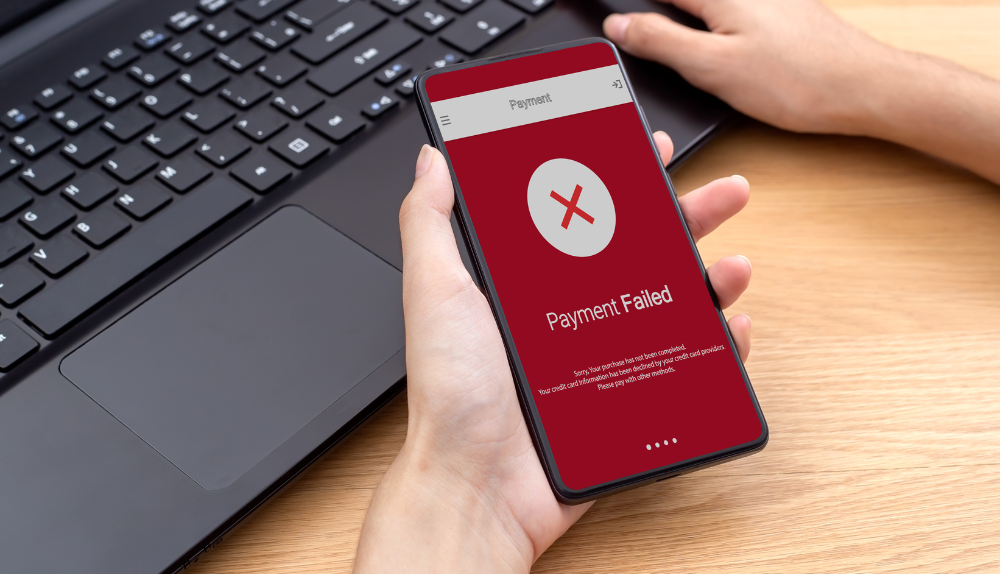
By max May 30, 2023
Shopify facilitates smooth online business operations. Its simple interface, easy navigation, in-house payment solutions, third-party app integration, and other variety of tools make it the best in the eCommerce market. Today, it powers millions of online stores worldwide and is the first choice of businesses considering the transition to digital stores.
But what if Shopify identifies you as a high-risk and freezes your account or holds your payment? What if they don’t accept you in the first place or terminate your account shortly after you finish the account setup? Don’t worry, we have got you covered. In this article, we will understand what to do if Shopify holds your funds.
Shopify has outlined the industries that it has prohibited to access its payment processing services in the terms and conditions section. You can check it to see whether your company falls into the prohibited category.
This article is for Shopify store owners that fall in the high-risk merchant category. If you are having difficulty getting your Shopify accounts or the funds back, read this post to gain a better understanding of how to navigate the industry.
High-Risk Merchants on Shopify
Shopify considers your business high-risk if you operate in high-risk industries, like tobacco, drugs, chemicals, weapons, cannabis, and more. Other than that, it has a set of protocols that can identify your business as high-risk even if your niche doesn’t fall in the high-risk industry category.
For instance, a business that has exceeded the threshold for the chargeback ratio might indicate poor management and customer dissatisfaction, resulting in your account being classified as high-risk. If that’s the case, Shopify won’t process your payments. The good news is that Shopify allows store owners to use third-party payment gateways for processing payments. But that’s also pretty complex since not many payment processors and acquiring banks are willing to partner with merchants falling into the high-risk business category.
Another common reason why Shopify might terminate your account and hold your funds is when it detects suspicious activity taking place in your store. If the merchant fails to provide goods as promised or meet customers’ quality standards, Shopify can suspend their accounts.
Likewise, poor inventory management, poor shipping and delivery practices, and an unfair return policy are some common reasons your account can get terminated. Sadly, Shopify has the right to suspend your account without a prior warning, which is why going over its terms and conditions & privacy policy is important before you register your business on this eCommerce marketplace.
Which Industries Are Considered High-risk?
As mentioned earlier, Shopify has prohibited certain businesses on this eCommerce platform due to the industry they work in. However, it’s not just the industry type. Some merchants are not allowed to have a Shopify account because of the high chargeback ratio or suspected behavior.
Violating the terms and conditions of Shopify or breaching its privacy policy can result in account suspension and termination. There’s a chance Shopify might not release your funds if it terminates your account. We’ve shared what to do if your account is on hold below. Before that, let’s take a look at the industries prohibited to use Shopify’s in-house payment processing features.
- Tobacco and e-cigarettes
- Weapons and fireworks
- Gambling-related tools
- Marijuana
- Virtual currency
- Pharmacies, prescription drugs, and other chemicals
- Adult content
- Illegal products
You can check Shopify’s T&C to get a clear picture of the industries restricted to use its payment processing. Note that Shopify can terminate your account if your chargeback and refund processing ratio goes beyond the threshold. It can also put your merchant account in the high-risk category if you are found to violate its policy.
Does Shopify Allow Its Default Payment System to High-Risk Merchants?

Processing credit card transactions on Shopify is not easy for merchants that fall into the high-risk category. The platform does not partner with high-risk merchants, especially when it comes to allowing them access to its default payment system. Working with these merchants means higher risk for the eCommerce platform and payment processors. That’s because it carries an increased risk of chargebacks.
Sadly, the list of the businesses that Shopify has categorized as high-risk is quite broad. Telemedicine, tobacco, cigarettes, alcohol, drugs, and other businesses selling products that are associated with controversy might face challenges when registering an account on Shopify.
Note that Shopify might allow you to create a merchant account on its platform and give you access to all its templates, add-ons, and other features. The only restriction is the payment processing. Shopify’s payment processor is PayPal, which terminates your account if you are identified as a high-risk merchant. So, Shopify can’t allow payment processing to these businesses. Other than that, you can set up an account on Shopify and use most of its features provided to other merchants.
Shopify’s Terms and Conditions
Read Shopify’s terms and conditions to learn more about its policy for high-risk merchants. They have outlined the payment processing approach for such businesses. If you are using Shopify’s in-house payment processing tools, you will need to pay close attention to its terms and conditions for merchants processing card transactions using its payment processor.
The T&C section of Shopify has covered the basic details about the platform, its services, and payment processing. You can find information regarding taxes, account setup, fees, security, payment method, and businesses restricted from having a merchant account on Shopify.
What To Do If Shopify Holds Your Funds?

Shopify has a stringent privacy policy, especially for payment processing. It is not uncommon for the eCommerce marketplace to freeze your account temporarily or terminate it permanently without any warning. If it puts your account on hold, it might request you to submit payment processing details, your business information, and other data to verify your account.
Fortunately, your account won’t be suspended for more than 72 hours given that you respond quickly. The easiest way to prevent such issues is by integrating third-party payment processors that accept high-risk merchants. It also prevents the risk of your funds getting held by Shopify after your account is suspended.
Shopify might also hold funds to prevent fraud practices. Selling products that are not allowed on this platform can result in a suspended account. So, always check the Shopify restricted product list and high-risk business category to see if the products you sell fall in any of the listed categories.
Shopify might hold your money for 14 days if you are new to the platform and have no success record yet. This is done to ensure that you deliver goods as promised and achieve customer satisfaction. They take this time to verify your transaction and see if everything is in line with their terms and conditions. The best thing you can do here is wait for two weeks to see if the payment reflects on your bank account. If you want to learn more about why your payments are held, contact Shopify’s support to know the reasons.
Here’s what you can do to avoid getting your money held by their team:
- Read the terms and conditions, as well as, its privacy policy to ensure you do not violate Shopify’s policy.
- Do not sell prohibited products
- Do not conduct illegal business or unfair practices.
- Keep your chargeback ratio as low as possible. If it exceeds the 1% threshold, Shopify might put your account and funds on hold.
If you have checked your account for the above-mentioned issues, but are still unsure about why your funds are being held by their team, get in touch with their support department. Shopify sends an email if it holds your fund or puts a temporary/permanent restriction on your account.
If you want, you can close your account on Shopify permanently and request a refund of the balance in your Shopify account. However, your best bet is to talk to them directly to understand and resolve the matter.
Setting Up a High-Risk Merchant Account on Shopify
Shopify doesn’t restrict merchants from selling restricted products listed above. It doesn’t allow them to use its in-house payment processor. That’s it. You can set up an account on Shopify like other merchants. The only exception is that you will need to find a payment processor that accepts high-risk merchants for handling transactions in the backend. Another option is payment aggregators.
They put several clients under one merchant account. While they offer quick approval of your merchant account, they do not support all industries and have slow fund processing timeframes. It’s better to work with payment processors instead of aggregators.
You can find banks and payment processors that approve high-risk merchant accounts easily and without charging an exorbitant fee.
Research the companies that work in the same industry as you and see which payment processing services they use. Other than payment processing, you shouldn’t face any problem setting up a Shopify account.
Conclusion
Running SMEs or large-scale businesses on Shopify requires a good cash flow and satisfied customers. Getting your funds on time will help you expand your business and achieve customer satisfaction. A few things, like keeping your chargeback ratio to a minimum, having a clean refund policy, and delivering goods as promised will help prevent your account from getting terminated.
